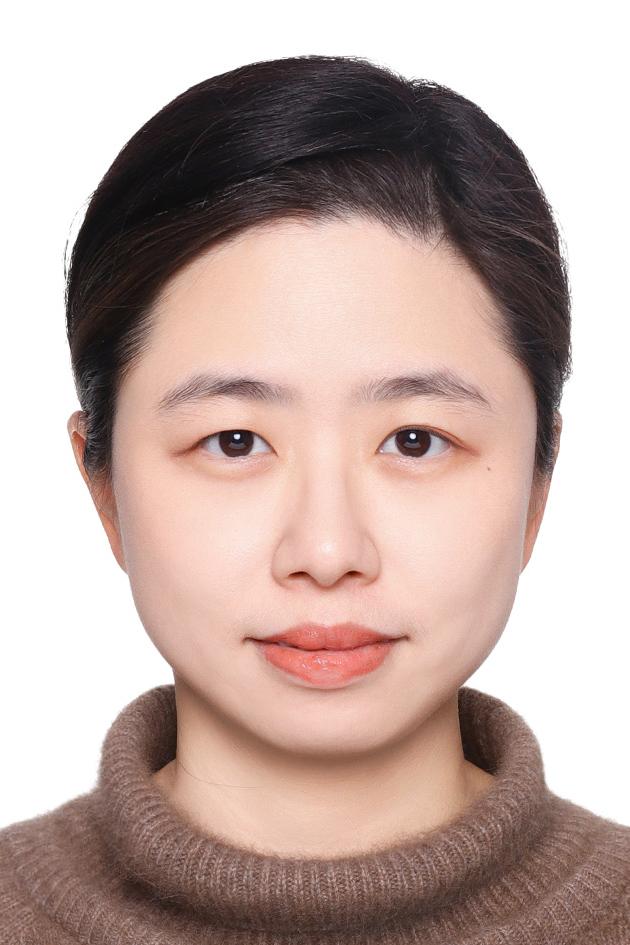
Multi-Agent & Intelligent Control Lab
Welcome to the Multi-Agent & Intelligent Control (MAgIC) Lab. MAgIC Lab was founded in September 2020 and is located in Room 1D-208A of ShanghaiTech Automation and Robotics (STAR) Center, School of Information Science and Technology (SIST), ShanghaiTech University, Shanghai, China. Our lab focuses on the advanced control theory for multi-agent systems, including adaptive control, intelligent control and data-driven control, and their practical applications on UAVs, bionic robots, manipulators and active noise attenuation. We welcome anyone interested in MAgIC Lab.
Prof. Yang Wang is an assistant professor at ShanghaiTech University. She received her Ph.D. at Imperial College London in 2019 and founded the MAgIC Lab in 2020.
-
姓名:张恒身份:博士生年级:博三邮箱:zhangheng1@shanghaitech.edu.cn研究方向:迭代学习,无人机飞行控制,Sim2Real
-
姓名:林霄竹身份:博士生年级:博二邮箱:linxzh@shanghaitech.edu.cn研究方向:机器人、流体动力学和控制的交叉领域
-
姓名:龚逸洲身份:博士生年级:博一邮箱:gongyz2022@shanghaitech.edu.cn研究方向:自适应控制 输出调节 观测器设计
-
姓名:何炳霖身份:硕士生年级:研三邮箱:hebl2022@shanghaitech.edu.cn研究方向:无人机控制算法,非线性系统建模
-
姓名:李新龙身份:硕士生年级:研三邮箱:lixl12022@shanghaitech.edu.cn研究方向:四旋翼控制和规划
-
姓名:赵宇航身份:硕士年级:研二邮箱:zhaoyh2023@shanghaitech.edu.cn研究方向:无人机在高机动状态下与流体相互耦合的研究
-
姓名:马钦潇身份:硕士年级:研二邮箱:maqx2023@shanghaitech.edu.cn研究方向:无人机建模 扑翼飞行器气动效应分析与优化设计 无人机状态预测系统
-
姓名:黄旭身份:硕士年级:研一邮箱: huangxu2024@shanghaitech.edu.cn研究方向:仿生机器人,机械设计,从虚拟到现实
-
姓名:姬晨阳身份:硕士年级:研一邮箱:jichy2024@shanghaitech.edu.cn研究方向:空间降噪、自适应控制、信号处理
-
姓名:戴鸿儒身份:硕士年级:研一邮箱:daihr2024@shanghaitech.edu.cn研究方向:机器鱼在流体环境中的行为与控制 人工侧线系统(ALLS)感知流速
-
姓名:张馨月身份:本科年级:本四邮箱:zhangxy18@shanghaitech.edu.cn研究方向:无人机飞行与控制
-
姓名:范奕成身份:本科年级:本四邮箱: fanych1@shanghaitech.edu.cn研究方向:无人机飞行控制,数据驱动建模,地面效应
My research journey spans over the robotic systems and control theory, with a primary focus on systems where agents interact with complex fluidic environments. This dynamic interaction manifests in scenarios ranging from robotic fish navigating water environments to unmanned aerial vehicles (UAVs) navigating wind fields and even noise compensators operating in intricate acoustic landscapes. Research on robots interacting with complex fluidic environments, such as Autonomous Underwater Vehicle (AUVs) and unmanned aerial vehicles (UAVs), is of paramount significance due to its multifaceted impact. It facilitates environmental monitoring, resource exploration, and management, offering crucial insights into aquatic and aerial ecosystems. These robots play pivotal roles in search and rescue operations, defense, surveillance, and infrastructure maintenance, reducing human risk and enhancing efficiency in challenging environments. Furthermore, this research contributes to fundamental scientific knowledge in fluid dynamics, aerodynamics, robotics and control theory, driving technological innovation with applications spanning multiple industries.
My overarching objective is to construct a versatile and comprehensive framework for modeling and controlling realistic systems concerning with complex fluidic environments. The distinctive challenge in this pursuit arises from the inherent characteristics of these systems. Their governing equations are not only high-dimensional but also nonlinear and time-varying, presenting formidable hurdles in obtaining corresponding control policies. Nevertheless, my research endeavors have remained steadfast in tackling these challenges through dedicated efforts in modeling, observation, and control methodologies.
In pursuit of my research objectives, I intend to synergistically employ methodologies encompassing dimensionality reduction, sparse sensing techniques, and machine learning paradigms. My aim is to leverage these tools for data-driven exploration and control of intricate dynamical systems. Furthermore, my research efforts entail the development of adaptive control strategies within an equation-free framework, capitalizing on data-driven approaches. Notably, the scope of my investigations encompasses applications rooted in fluid dynamics, including the domain of near-ground flight control, dynamic modeling and motion control of biomimetic fish-like robots, and the realm of active noise control.
EE160
Introduction of Control
The course Introduction to Control provides an overview of control systems. We cover scalar models as well as single-input-single-output (SISO) systems and basic concepts of linear control system design including PID control. Towards the end of the lecture we touch basic ideas of modern controller design based on optimization including the linear-quadratic regulator, a famous controller that can be used to design closed-loop feedback gains for multi-input-multi-output (MIMO) systems. Moreover, all students will learn how to use the theory of this lecture in practical applications. We will discuss a large number of application problems and the students will use at least one programming language to simulate and design control systems. Active participation in numerous smaller and bigger programming projects is required. The course is highly recommended for all students in the field of engineering, mathematics, physics, and computer science, who want to develop a basic understanding of control. The course is mandatory for everyone who wants to work in electrical or electronic engineering, circuit design, robotics, signal processing, network algorithms, and optimal control.
EE264
Adaptive Control
This course provides a rigorous introduction to the theory and methodology used in the field of adaptive control. Concepts are presented in the context of uncertain systems, addressing issues such as uncertainty of model, disturbance rejection and partial measurements. The techniques taught in this course considered advanced in the field of modern control theory and can also be used in the area of system identification and signal processing. The course is highly recommended for all students in the field of engineering, mathematics, physics, and computer science, who want to develop an advanced understanding of control. It founds various applications in electrical or electronic engineering, mechiniacal engineering, robotics, signal processing, artificial intelligence and so on.
EE265
Nonlinear Control
As is well known, many control systems are nonlinear, especially in fields such as robot control, aircraft flight control systems, and helicopter flight control systems. Research on nonlinear control systems has a history of nearly a century since the birth of control theory. Due to the potentially richer and more complex characteristics of nonlinear control systems compared to linear systems, and the fact that, except for some special cases, most mathematical equations describing nonlinear systems cannot obtain closed-form or analytical solutions, efforts have long been focused not on finding direct analytical solutions but on studying some qualitative properties of the systems. For example, significant achievements have been made in the study of stability. Notably, the Lyapunov method, phase plane method suitable for analyzing low-order systems, and describing function method have been developed. However, the problems solved in the aggregate are limited, with many fundamental issues remaining unresolved, some only serving as a starting point, and others still blank, far from meeting the needs of engineering technology and other fields.
服务于上科大信息学院招生委员会,学位委员会以及奖惩委员会
服务于上科大上道书院,担任书院导师





 沪公网安备 31011502006855号
沪公网安备 31011502006855号


